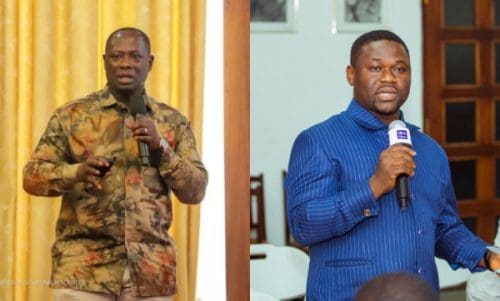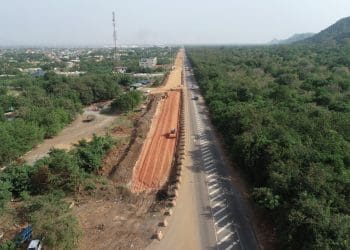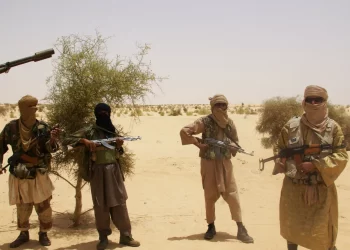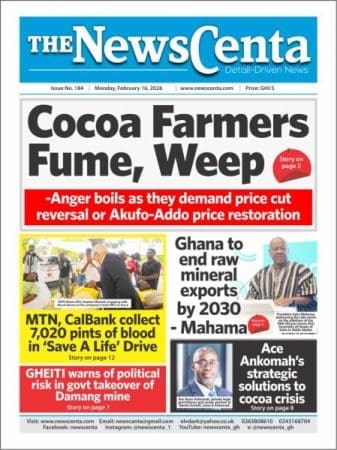The government’s decision to revoke 278 small-scale mining licences has sparked concerns over potential legal and political fallout, with industry experts warning that the move, while aimed at sanitising the sector, could expose the state to litigation and social unrest if due process is not followed.
A mining engineer, Ing. Wisdom Gomashie, has cautioned that the action taken by the Minister of Lands and Natural Resources, Mr Emmanuel Armah-Kofi Buah, though well-intentioned, may have breached sections of Ghana’s mining regulations, raising questions about procedural fairness and consistency of enforcement.
Questions over due process and rule of law
The Minerals Commission, in a statement, announced that the affected licences were revoked for regulatory breaches and expired permits following an audit ordered by the minister upon assumption of office. Ing.
Gomashie, while commending the minister for taking decisive action to address illegalities in the mining sector, said the process of revocation appeared flawed and susceptible to legal challenge.
“It is a good exercise marred by legal breaches and political undertones,” he said, adding that Ghana’s Minerals and Mining Regulations, particularly Regulation 251(3) of L.I. 2176, require that the Commission issue a written notice and allow a 120-day grace period for rectification before a licence can be terminated. “My checks reveal that this was not done. Ghana is a country governed by the rule of law,” he noted.
Political undertones and dangerous precedents
According to Ing. Gomashie, the revocation exercise could be interpreted as politically motivated, given its timing and the composition of the affected licences.
He pointed out that most small-scale mining licences currently in circulation were either renewed or granted under the previous New Patriotic Party (NPP) administration, as the last National Democratic Congress (NDC) government left office in 2016, and such licences typically have a five-year tenure.
“What this means is that over 85 per cent of the licences granted or renewed by the NPP have now passed the NDC’s integrity test of compliance. However, some of the revoked licences were granted as recently as December 2024, and others just before the change of government on January 7, 2025. Some of these operators have not even begun work on the ground,” he explained.
He warned that revoking licences based solely on the date of issuance — particularly those signed close to or after the 2024 elections — would be a dangerous precedent that could expose the government to legal action and potential judgment debts.
“A minister may sign a document on January 6, and it could be registered by the ministry on January 8. The registry date does not invalidate the executive authority of the minister,” he said.
Breaches in renewal procedures
Ing. Gomashie also raised questions about the Commission’s adherence to renewal procedures under Regulation 252(1), which permits licence holders to apply for renewal up to 90 days before expiration.
He asked whether affected licence holders who had applied for renewal within the stipulated period were duly considered before their licences were revoked.
He further noted that the expiration of a small-scale mining licence alone was not a legal ground for revocation if a renewal application was pending.
“The law requires that the Minerals Commission notify the licence holder upon expiration, as stipulated in Form 90 of the First Schedule, but my checks indicate that this was not done,” he said.
Citing precedents, Ing. Gomashie referenced cases involving some large-scale mining firms which were given written notices of breaches and 120 days to rectify them before any action was taken.
“Why can’t the same procedure be applied to small-scale operators?” he asked.
“We cannot apply the same law differently and expect small-scale miners to formalise overnight.”
Implications for mining communities
He stressed that small-scale mining remains the backbone of Ghana’s gold trade, providing livelihoods for thousands of local operators, unlike multinational mining companies that are largely foreign-owned.
Abruptly shutting down local operations without adequate recourse, he warned, could deepen unemployment and fuel illegal mining (galamsey) activities.
Ing. Gomashie also cautioned that politically influenced decisions in the allocation or revocation of licences could damage public confidence in the mining regulatory regime.
He said the Minerals Commission must not become a tool for political retribution against miners perceived to be aligned with particular parties.
“The Commission should not be used as a vehicle to target miners based on political affiliations. That is dangerous and will worsen the illegal mining problem,” he stressed.
Call for transparency and institutional reform
The mining engineer called for greater transparency in the audit process, urging the Ministry to disaggregate the list of revoked licences and publish the specific breaches that led to each revocation.
He argued that public disclosure would promote accountability and provide guidance to future applicants.
He also urged the Minister and the Commission to ensure that once a licence is lawfully revoked, its reallocation should not become a political exercise or an avenue for patronage.
Existing licence holders, he said, should be given the first opportunity to reapply to avoid conflicts within mining communities.
Additionally, he recommended that the Minerals Commission strengthen its institutional capacity by ensuring that district officers report directly to regional offices and are qualified as certified mining inspectors.
“The current situation where district officers report directly to Accra weakens the compliance framework,” he said, adding that regional small-scale mining units should be established across all regions to enhance monitoring and coordination.
A call for fairness, lawfulness, and national interest
In conclusion, Ing. Gomashie said while the minister’s intention to sanitise the sector was commendable, the exercise must be guided by legality, equity, and due process.
“If the Ministry fails to follow the law in any of these revocations, it could lead to social unrest in mining communities and worsen the menace of illegal mining,” he warned.
He emphasised that good governance in the extractive sector depends not only on decisive action but also on fairness and transparency.
“Let’s work together to make Ghana’s mining industry a great one — one that upholds the rule of law and protects the livelihoods of our people,” he said.













